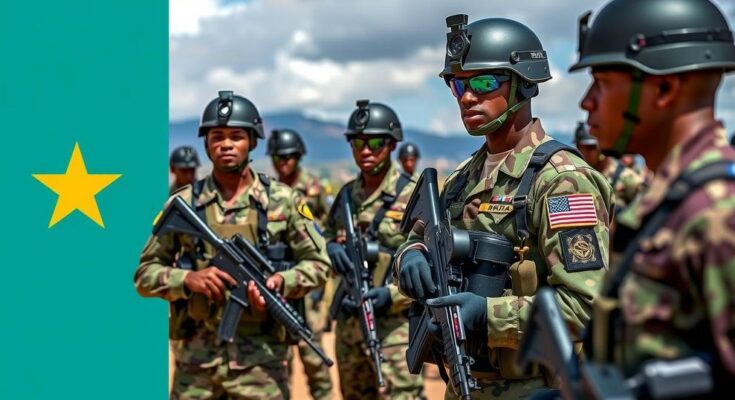The United States is advancing its campaign to convert a Kenya-led force in Haiti into a U.N. peacekeeping force due to escalating gang violence. The gangs have intensified attacks recently, culminating in the closure of air traffic to the capital. The U.S. has sought U.N. Security Council support, but objections from Russia and China present ongoing challenges amidst concerns about resource availability for the mission.
The United States has intensified efforts to transition the Kenya-led multinational force in Haiti into a United Nations peacekeeping mission, motivated by the escalating violence perpetrated by gangs in Haiti. Recent attacks prompted the closure of air traffic in Port-au-Prince, highlighting the urgent need for international security assistance. In September, the United States proposed the U.N. involvement to ensure sustainable funding for the mission aimed at aiding the Haitian government in combatting gang control, which currently affects approximately 85% of the capital. Heightened gang violence, particularly after political turmoil led to the firing of Haiti’s interim prime minister, has necessitated a swift response. The U.S. sought support from all U.N. Security Council member nations for a draft resolution to initiate the transformation of the Kenya-led force. However, objections were raised, notably from Russia and China, who called for further discussions before proceeding. The trust fund financing the operation remains under-resourced, which could hinder effective deployment, as highlighted by U.N. officials. Despite Kenya’s commitment to send additional troops, concerns about resource availability persist, compounded by historical challenges associated with previous U.N. interventions in Haiti. The situation is pressing, as the gang-related violence not only threatens immediate security but also undermines attempts at establishing a stable governance structure. While some in Haiti welcome foreign assistance, apprehension regarding the potential implications of a U.N. presence remains widespread.
Haiti is currently facing a severe security crisis exacerbated by rampant gang violence, particularly following the assassination of President Jovenel Moïse in 2021. The power of gangs has surged, leading to widespread violence, including killings, kidnappings, and rapes. The Haitian government has requested international assistance, prompting discussions for a U.N. peacekeeping operation. The context includes historical foreign interventions, which have been met with mixed reactions from the Haitian populace due to past negative experiences tied to U.N. missions.
In conclusion, the U.S. initiative to convert the Kenya-led force into a U.N. peacekeeping mission reflects a proactive approach to stabilize Haiti amidst escalating violence. While there are significant hurdles relating to funding and political consensus within the U.N. Security Council, the urgency of the situation calls for concerted international cooperation and support to restore order and security in Haiti.
Original Source: www.military.com




